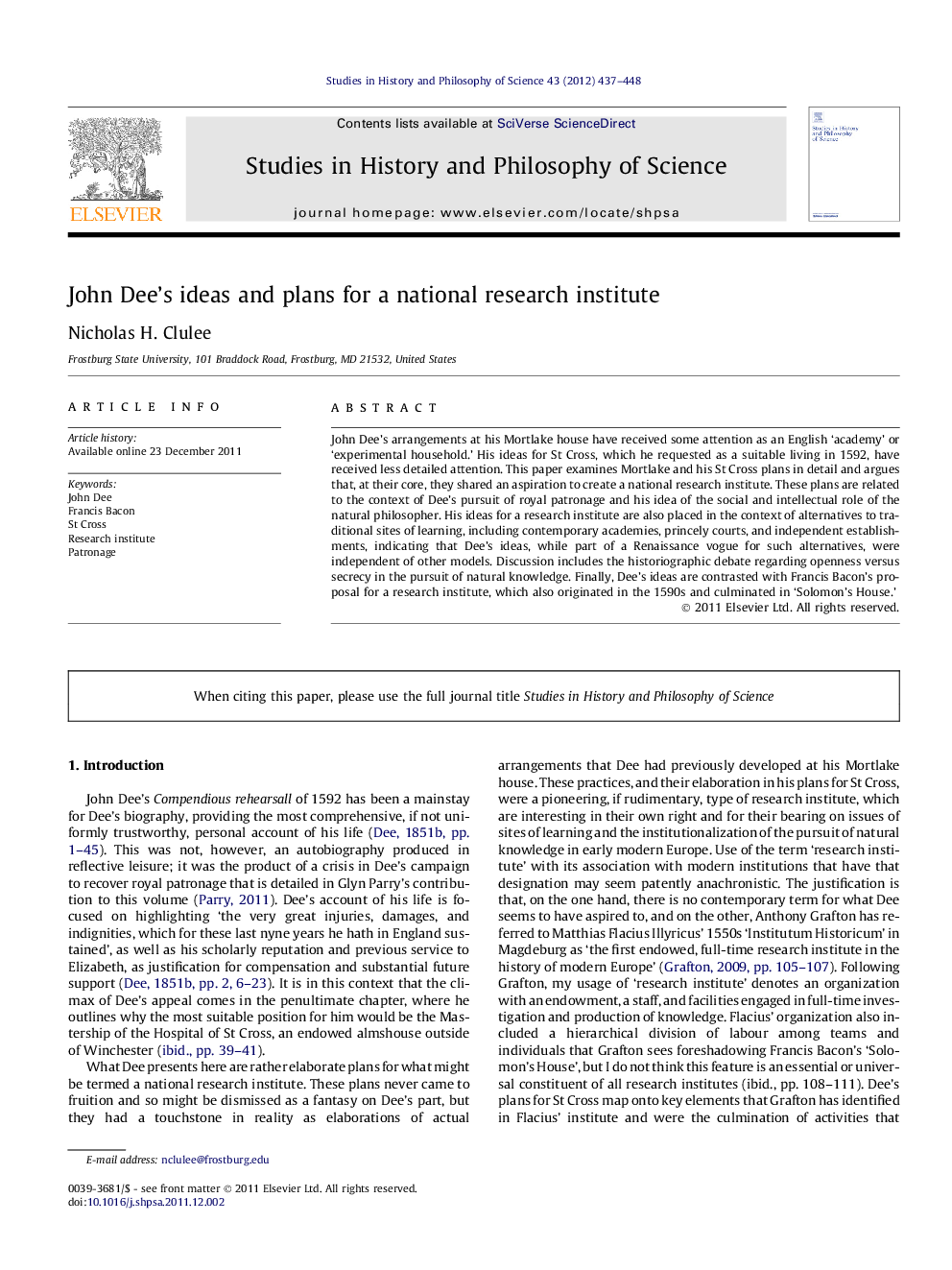| Article ID | Journal | Published Year | Pages | File Type |
|---|---|---|---|---|
| 7551756 | Studies in History and Philosophy of Science Part A | 2012 | 12 Pages |
Abstract
John Dee's arrangements at his Mortlake house have received some attention as an English 'academy' or 'experimental household.' His ideas for St Cross, which he requested as a suitable living in 1592, have received less detailed attention. This paper examines Mortlake and his St Cross plans in detail and argues that, at their core, they shared an aspiration to create a national research institute. These plans are related to the context of Dee's pursuit of royal patronage and his idea of the social and intellectual role of the natural philosopher. His ideas for a research institute are also placed in the context of alternatives to traditional sites of learning, including contemporary academies, princely courts, and independent establishments, indicating that Dee's ideas, while part of a Renaissance vogue for such alternatives, were independent of other models. Discussion includes the historiographic debate regarding openness versus secrecy in the pursuit of natural knowledge. Finally, Dee's ideas are contrasted with Francis Bacon's proposal for a research institute, which also originated in the 1590s and culminated in 'Solomon's House.'
Keywords
Related Topics
Social Sciences and Humanities
Arts and Humanities
History
Authors
Nicholas H. Clulee,
